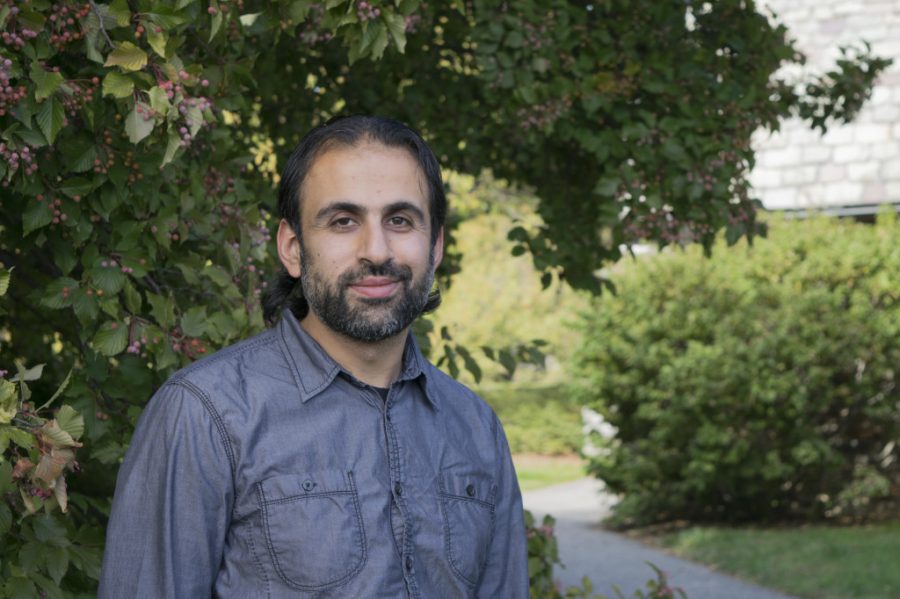From Mecca to Swarthmore: Umar Rahman crosses boundaries to build bridges
A photo of Umar Rahman, NPHS alum and instructor at Alanur, an organization that teaches about Islam and offers spiritual activities to those who need it.
There is no doubt that teaching requires a certain level of passion. Everyone can remember that one teacher who with a combination of real experience and talent effortlessly weaves together the chasm of understanding between your mind and the topic at hand. There can hardly be a better example of this passion than NPHS alum and Muslim student advisor at Swarthmore College Umar Abdul Rahman, who from his Hajj to Mecca to his recent appearance at Mr. Knaub’s world religions class demonstrates his deep love of creating understanding of Islam with the community.
Having begun his journey down the path of Islam joining Muslim camps and participating in activities with his fellow coreligionists, slowly growing his sense of his identity and religiosity during these years, and building a deeper relationship with both the cultural and religious aspects of his community.
“”Within the community, we had a small group of people, maybe a dozen families, mostly from a South Asian background, and so we would meet around Friday nights [around] Qur’an reading and explanation. There was no mosque, [the camp] was our source of community, if you had to go to a mosque, you had to go to Philly and [engage with] the broader South Asian community… I think it was really good in terms of having other people going through similar experiences that you could connect to… The organization was really helpful, I can remember distinctly having more pride in my identity, after going to those events.”
Eventually, his explorations of his religion would lead to Rahman taking an eventful Hajj, or holy pilgrimage to the city of Mecca and surrounding areas in Saudi Arabia, long before the process was made more streamlined by the Saudi government, he had to deal with being packed in tents filled with countless people who could take his stuff the moment he stopped looking.
Despite the challenges, this experience supercharged his connection to Islam, and would be part of a path of exploring the various branches and traditions Islam has to offer, especially in a scholarly way.
This journey of his colored the advice he gave to those interested in learning more about Islam.
“[For Muslims at North Penn] in general, just I think exposing yourself [to the various traditions and branches of Islam], just knowing that Islam is more diverse than the way it may be presented in your local communities… [and try to stay connected] to the faith community as a whole. I think it’s important to stay connected to your community… it helps in terms of identity formation, for fellowship, for being able to connect with people with similar backgrounds. Just like any minority group, [it’s important] to have that critical mass. I’m glad that exists now.”
Rahman’s advice also extended to non-muslims, and the understandings they should try to develop in order for a stronger mutual connection to develop in any community with Muslims and non-muslims.
“I mean, in general, there are a lot of misunderstandings about Islam, primarily based on what you see in the media out there. So trying hard to really understand a religion from its own adherents, or in a more scholarly way is important, instead of just [taking things out from] sound bites or stereotypes… especially these days, with a polarized society… So it’s important to get to the source and really talk to community members, people that have knowledge of the faith, whether it’s academics or clergy. I think it helps to remind yourself that … when it comes to other religions… people can see the nuances oftentimes of their own faith, but when it comes to others, they assume the simplest thing.”
Lastly, Rahman was deeply impressed by the amount of change in diversity that has swept North Penn since he was a student, and the amount the Muslim community has grown here along with other communities from around the world. He believes that North Penn is gifted with an open generation of all kinds of people that lets anyone develop their own identity and sense of belonging.


